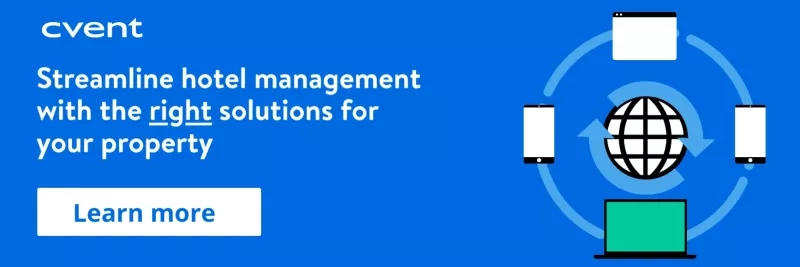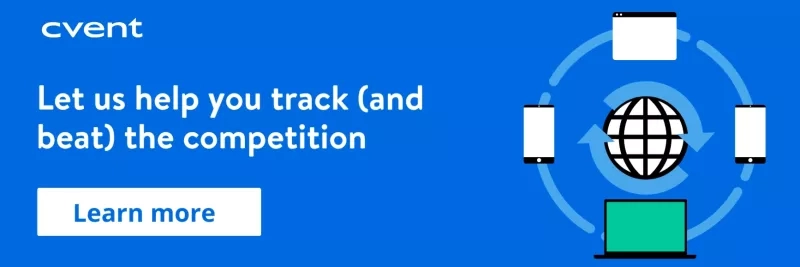
Faced with labor shortages, fluctuating markets, and rebounding occupancy levels approaching pre-pandemic levels, many hoteliers are combating a complex mix of challenges. From struggling with scheduling and stress to dealing with burnout and inefficiency, modern hoteliers have a unique set of hurdles to overcome. If you’re looking to boost your hotel’s performance, build a stronger team, or improve your management skills, this list of hotel management tips is here to help.
In this post, we cover a wide variety of hotel management tips to help hospitality professionals become better leaders. We discuss the importance of team-building, trust, transparency, industry trends, and so much more. Find tips, tools, and resources to improve the way you manage your hotel, your staff, and even yourself.
Explore 11 hotel management tips to maximize your leadership, efficiency, and much more
Whether you’re an experienced hotel manager, brand new to the job, or are quickly rising up the ranks, there’s always room to grow and improve. Look for ways to enhance your leadership skills with the hotel management tips below.
1. Build a strong team.
A hotel manager is only as strong as the team that supports them. Focus on hiring the right hotel staff, providing training, and supporting every member of your team. Strive to make new employees feel comfortable and welcome from the moment they walk through the door, and regularly check-in with all staff members to assess employee satisfaction. Invest in staff training, helpful software systems, and technology that provides additional support services for hotel employees.
Host team meetings and incorporate team-building exercises for hotel staff. Encourage staff members to participate in activities and competitions that incorporate the duties of different hotel positions. Host a blindfolded bed-making race, for example, or practice overcoming guest objections in humorous over-the-top scenarios. By showcasing the challenges different departments encounter day-to-day, and the obstacles different positions must overcome, hotel managers encourage employees to empathize with one another while fostering a supportive work environment.
2. Emphasize employee appreciation and recognition.
It may be the most obvious of the hotel management tips on this list, but its importance can't be overstated. Second only to work-life balance, recognition is the reason many employees stay at their current job. In the 2021 Engagement and Retention Report released by Achievers Workforce Institute, 21% of survey respondents listed employee recognition as the top reason they continue to work in their current position. Barely eclipsing recognition, 23% of respondents selected work-life balance as the primary factor.
As employee retention is a constant struggle for many hotel managers, investing in employee recognition and staff appreciation can help increase employee satisfaction, leading to higher retention levels. In addition to staff meetings, dinners, outings, and other standard recognition practices, show employees your gratitude with the rewards that really matter, such as:
- Incentive and bonus programs
- Competitive wages
- Additional PTO
- Profit-sharing
- Health benefits
- Mental health support services
Once a month, gather department heads to discuss employee recognition and success stories. Nominate and celebrate an “employee of the month” or multiple employees each quarter. Shout out superstar employees in morning huddles, departmental meetings, and on social media pages!
Bonus tip:
- If you’re not sure whether or not hotel employees are satisfied, just ask them!
3. Invest in high-quality hotel software.
Investing in high-quality, integrated, and intuitive hotel software can revolutionize the way hotel managers run their business. Although software may be an added expense, the time and money hotel managers can save by integrating their systems is invaluable.
Many busy hoteliers, especially those managing large hotels or multiple properties, invest in integrated property management systems to save time and eliminate tedious processes. Integrated property management systems connect the hotel’s CRM and RMS to provide real-time availability updates on hotel distribution channels. Integrated software systems also help hotels optimize their pricing strategies, streamline lengthy manual entry procedures, and so much more.
4. Design a thoughtful set of SOPs.
An imbalance in staff training can reduce the efficiency of hotel operations and increase the risk of error. Create a thoughtful and comprehensive set of all of your hotel’s standard operating procedures (SOPs), as well as a set of SOPs for each employee position.
For each procedure or process that an employee is to complete during their shift, create a thoughtful SOP that details how to complete the task step-by-step. SOPs can assist employees as they complete their daily hotel duties and help ensure that all employees are on the same page, following the same steps, and completing tasks in the same order. When checking a guest in, for example, all employees should be able to refer to their front desk training and complete the same steps in the same order.
During night audit, over the holidays, and other times when management is not readily accessible, employees will benefit from having reference materials on-hand to answer questions or guide them through complex processes. In addition to creating easy-to-access computer files with printable copies of hotel SOPs, keep an up-to-date print version on-hand for power outages, computer failures, or other tech issues that could impede the accessibility of computer files.
Bonus tips:
- Create separate SOPs for each department: housekeeping, maintenance, F&B, sales, and the front desk staff.
- Regularly update departmental SOPs to ensure that employees always have the most up-to-date set of rules and procedures at their disposal.
5. Practice the art of delegation.
In order to obtain the highest levels of success, hotel managers need to focus their time and energy in the areas that will benefit the hotel most. Successful hotel managers are able to identify their strongest skills and weakest performance areas, as well as pinpoint the strengths and weaknesses of fellow hotel staff. Look for employees and managers with notable passions or skill sets and assign responsibilities that will promote the development of those passions.
In addition, hotel management can be incredibly stressful. Some managers have a bad habit of taking on more and more responsibility as new tasks arise, leading to burnout, anxiety, and potentially poor leadership. Instead of overburdening yourself by taking on any and all new duties that arise, delegate management responsibilities to the team leaders best equipped to handle them.
6. Track the competition.
Understanding your hotel’s competitive set is a vital part of effective hotel management. First and foremost, it's key to identify the primary factors that set your hotel apart from others in the area. For example:
- Does your hotel offer more event space than the comp set?
- Are your guest rooms equipped with the latest in smart-room technology?
- Does your property offer low-cost extended-stay services?
Market your hotel’s key features, amenities, and other selling points that help your hotel stand out. Make it easy for everyone from travelers and travel agents to planners and their attendees see why your hotel outshines the competition.
Bonus tips:
- In addition to determining what your hotel has in common with the comp set, look for areas in which your hotel services are falling behind.
- Regularly check the primary website and social media pages for each hotel in your comp set. If all of the hotels in your area have an Instagram presence, but you don't, you’re missing the opportunity to connect with that audience.
- Keep track of any new hotel technology being implemented by your competitors.
7. Schedule employees efficiently.
Use hotel demand forecasting reports to identify high-occupancy dates well in advance. Utilizing future forecasts, hotel managers are able to optimize employee scheduling and ensure balanced coverage during each shift. In addition, departmental managers are able to adjust their staffing budgets accordingly and allocate for higher staffing levels during busy periods.
Hoteliers should also train “backup” employees in the duties associated with specialized staff positions. The employee or employees who work night audits, for example, have a very different set of duties than employees who cover the front desk during afternoon check-in. Identify one or two employees who are willing to work the audit shift if needed, and train them in the policies and procedures relevant to running night audit. Do the same for early morning F&B positions, housekeeping inspectors, and other specialized positions so that when an employee is unavailable or absent, hotel operations are not detrimentally affected.
Failing to train employees in secondary positions can lead to management frequently being called upon to cover open shifts. If your hotel’s front desk manager is consistently called in to cover night audit shifts, their valuable services are being pulled away from daily hotel operations.
Bonus tips:
- Determine which employees are actively seeking additional hours and which are willing to take on extra shifts with notice.
- Work out a system for holiday requests far in advance so you don’t face a sudden lack of coverage or upset employees the week before a special event or holiday.
- Stay on top of employee availability and changes in availability, especially during peak seasons or periods with high day-to-day guest turnover rates.
8. Utilize hotel automation tools.
Take advantage of hotel automation tools to make hotel procedures even more efficient. Whether you’re authorizing a guest’s card pre-arrival, emailing guests their bill after checkout, or posting service charges in real-time, automating various hotel procedures helps free up the front desk to focus on in-house customer service and reduces the risk of merchant chargebacks.
9. Keep up with hotel and hospitality trends.
Being a leader in hospitality means being an innovator. To remain relevant and competitive in a crowded marketplace, hotel managers must keep up with evolving trends in the hospitality industry, shifts in marketing strategies, and performance trends specific to their hotel and market.
Stay ahead of the curve by embracing change. Keep up with trends in:
- Hospitality technology
- Revenue management
- Online advertising
- Social media marketing
- Experiential marketing
- Hotel software
- Mobile check-in services
Take advantage of advances and implement new technology that will help your hotel streamline operations or drive more revenue.
Stay on the cutting edge of all things hospitality
10. Keep your hotel's online presence up to date.
Refresh your hotel’s website and online listing pages to include top-quality professional photos and showcase new amenities or updated features. Include modernized marketing content that appeals to event planners, travel agents, and tech-savvy travelers. Invite online guests to take a photo-realistic 3D tour of your hotel or explore the grounds through bird’s-eye-view high-definition drone footage.
In addition to your hotel’s website, focus on optimizing your entire online presence. From social media sites to listings on third-party booking sites, your hotel’s information should be accurate and consistent across all platforms.
To further increase your hotel’s exposure, list your property on group and event venue sourcing platforms such as the Cvent Supplier Network or Wedding Spot (a venue-only wedding directory). Identify your target market segments (such as SMERF, group, transient, etc.), and list your property on venue sourcing platforms that cater to those target markets.
11. Embrace constructive criticism and implement feedback.
Expert hotel managers understand the importance of making guest and employee satisfaction two of their highest priorities. They do not act superior or assume they know best. Instead, expert hotel managers thrive on constructive feedback from their guests and employees. They encourage others to share their honest feelings, analyze customer feedback, and use it to improve hotel operations.
Read and respond to guest reviews, social media comments, and anonymous employee satisfaction surveys. Acknowledge constructive criticism from guests and employees alike. Express your appreciation for honesty and having the opportunity to improve. In addition to acknowledging the issue, commit to implementing the feedback. Create a plan that outlines the steps management will take to correct the problem moving forward.
Encourage others to express their feedback openly by creating an environment of transparency and trust. Work on building trust with hotel employees by taking responsibility for management mistakes. Promote accountability by holding yourself accountable.
Bookmark this list of hotel management tips for fast access!
Now you’re equipped with a list of hotel management tips you can use to improve hotel operations, increase guest satisfaction, and boost team morale. Keep in mind, however, that effective hotel management also relies on accurate revenue management. Even if hotel operations are running in tip-top shape, failing to effectively manage the hotel’s revenue stream can inhibit overall success.
Up next, shift your focus to your customers with our guide, 7 Ways to Impress Hotel Guests and Earn More Business.








